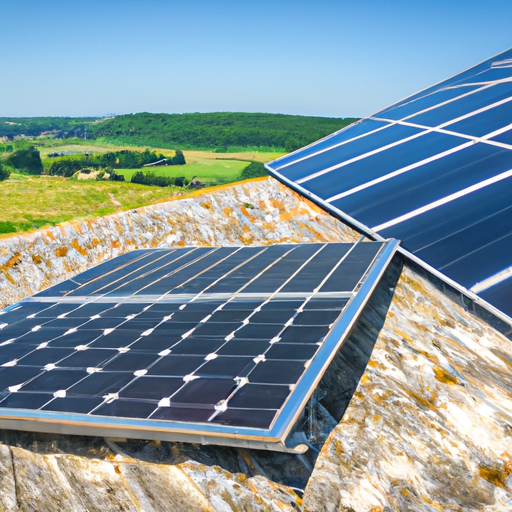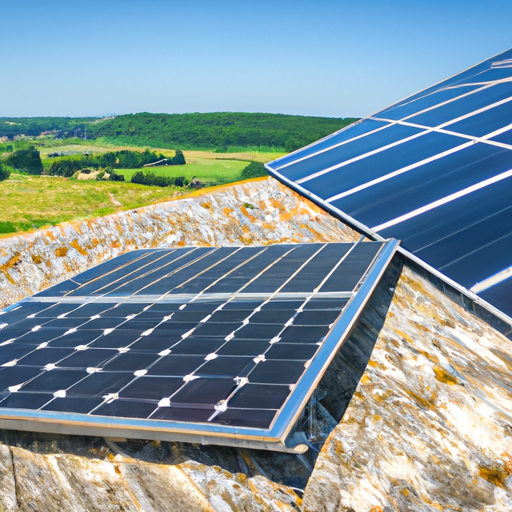Have you ever wondered what happens to solar panels when they get too hot? It’s a common question among those who live off the grid and rely on solar power for their energy needs. Well, let me tell you, overheating can have some serious effects on solar panels, and it’s not something you want to ignore.
When a solar panel gets too hot, its efficiency starts to decrease. This means that it won’t be able to generate as much electricity as it normally would. So, if you have a lot of hot days and your solar panels are continuously exposed to high temperatures, you might notice a drop in the amount of power they produce. And let me tell you, that can be frustrating, especially if you’re relying on solar energy as your sole source of power.
But the effects of overheating on solar panels don’t stop there. Extreme heat can also lead to a decrease in the panel’s lifespan. The high temperatures can cause the materials inside the panels to deteriorate faster, which means you might need to replace them sooner than anticipated. And trust me, solar panels are not cheap, so having to replace them more frequently than necessary can really put a dent in your wallet.
If you want to learn more about the effects of overheating on solar panels and how to prevent it, make sure to read our full article. You’ll find some useful tips and tricks on how to keep your solar panels cool and maximize their efficiency, even during the hottest days of the year. Trust me, it’s definitely worth a read if you want to get the most out of your solar power system.

The Effects of Overheating on Solar Panels
Overheating and Solar Panels
Solar panels are a popular and environmentally-friendly option for generating electricity, especially for those who live off the grid. However, if not properly managed, these panels can overheat, leading to a range of negative effects. In this article, we will explore the causes and consequences of overheating on solar panels, as well as ways to prevent this issue.
Causes of Overheating
Overheating can occur due to a variety of factors, including extreme weather conditions, poor installation, lack of proper ventilation, and excessive dirt or debris buildup on the panels. When solar panels are exposed to high temperatures for long periods, their performance and longevity can be significantly compromised.
Impact on Efficiency
One of the primary effects of overheating on solar panels is reduced efficiency. Solar panels work by converting sunlight into electricity, but when the panels get too hot, their ability to convert sunlight into usable energy decreases. As a result, you may experience a drop in the overall efficiency of your solar power system.
Loss of Power Generation
As solar panels become overheated, the production of electricity may decline. This decrease in power generation can be frustrating, especially if you rely on solar energy to meet your household’s electricity needs. If your panels consistently overheat, you may have to switch to other energy sources during peak heating periods to ensure a continuous supply of electricity.
Reduced Lifespan
Continuous exposure to high temperatures can also shorten the lifespan of your solar panels. With prolonged overheating, the panels may experience accelerated degradation, leading to a decrease in their overall lifespan. This means that you may need to replace your solar panels earlier than expected, resulting in additional costs.
Physical Damage
In addition to reduced efficiency and a shorter lifespan, overheating can cause physical damage to solar panels. When subjected to extreme heat, certain components of the panels, such as the cells and the wiring, can become warped or even melt. This physical damage can render the panels useless and require immediate repairs or replacements.
Safety Risks
Overheating solar panels can also pose safety risks. Excessive heat can lead to electrical arcing, which could potentially result in fires or other electrical hazards. Additionally, if the panels are not properly installed and overheating occurs, there is a chance of structural damage or even the panels detaching from their supports.
Preventing Overheating
To prevent the negative effects of overheating on solar panels, it is crucial to implement proper installation and maintenance practices. Here are some key steps to consider:
Proper Installation: Ensure that your solar panels are installed in a location that receives adequate airflow and is not exposed to direct sunlight throughout the day. Orienting the panels at an angle that minimizes exposure to the hottest times of the day can also help prevent overheating.
Ventilation: Proper ventilation is essential in preventing overheating. This can be achieved by leaving enough space between the panels and the mounting surface to allow airflow. Additionally, installing a ventilation system specifically designed for solar panels can regulate temperature and prevent excessive heat buildup.
Regular Cleaning: Regularly cleaning your solar panels is vital in maintaining their efficiency and preventing overheating. Dust, dirt, and debris can accumulate on the surface of the panels, obstructing sunlight and causing them to heat up. Cleaning them with a soft sponge or cloth, using water if necessary, can help ensure optimal performance.
Conclusion
Overheating can have significant ramifications on the efficiency, power generation, longevity, and safety of your solar panels. By understanding the causes and consequences of overheating, and implementing preventive measures such as proper installation, ventilation, and regular cleaning, you can enjoy the full benefits of solar energy without the detrimental effects of overheating. Remember, taking care of your solar panels will not only maximize their lifespan and efficiency but also contribute to a more sustainable future. So, be proactive and keep your panels cool to continue harnessing the power of the sun.





